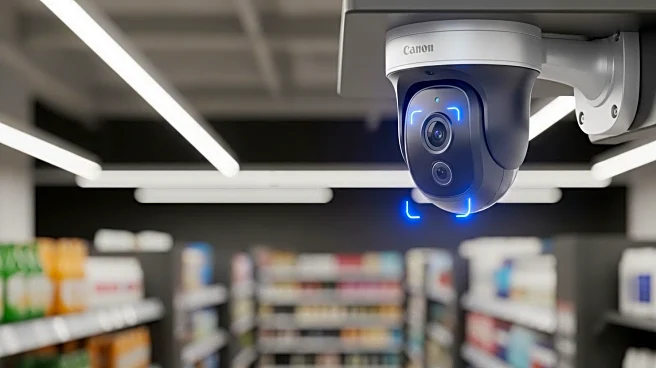What is the story about?
What's Happening?
Retailers in the UK are increasingly adopting facial recognition technology to combat rising incidents of shoplifting and violence against store workers. Supermarket chains such as Asda and Iceland have installed facial recognition systems in select stores, aiming to identify individuals who have previously committed crimes. This move comes in response to a significant increase in retail crime, with shoplifting offenses in England and Wales rising by 20% to 530,643 incidents in the year ending March 2025. The technology has sparked controversy, with privacy advocates expressing concerns over its implications for civil liberties. Despite these concerns, retailers are pursuing technological solutions to address the lack of police response to shoplifting incidents, as fewer than one in four incidents were attended by police officers in 2023.
Why It's Important?
The implementation of facial recognition technology in retail settings highlights the growing tension between security measures and privacy concerns. As retailers face increasing pressure to protect their assets and staff, the use of advanced surveillance technologies could become more prevalent. This trend may lead to significant changes in consumer behavior, as shoppers may feel uneasy about being monitored while shopping. Additionally, the reliance on technology to address crime may shift the burden of security from law enforcement to private entities, raising questions about accountability and oversight. The broader implications for privacy rights and civil liberties are significant, as the use of biometric data in everyday transactions becomes more common.
What's Next?
Retailers are likely to continue exploring technological solutions to address shoplifting and violence, potentially expanding the use of facial recognition and other surveillance technologies. As the cost of these systems decreases, more stores may adopt similar measures. However, ongoing debates about privacy and civil liberties could lead to increased scrutiny and calls for regulation. Retailers will need to balance security needs with customer trust, ensuring transparency and ethical use of technology. The development of new technologies, such as Amazon's 'just walk out' system, may offer alternative solutions that minimize theft while addressing privacy concerns.
Beyond the Headlines
The use of facial recognition technology in retail settings raises ethical questions about the balance between security and privacy. As technology advances, the potential for misuse or errors in biometric surveillance increases, highlighting the need for robust governance and oversight. The cultural shift towards accepting surveillance in everyday life may have long-term implications for privacy norms and consumer expectations. Additionally, the integration of AI-powered surveillance and predictive monitoring could transform retail operations, influencing how businesses interact with customers and manage security.

















